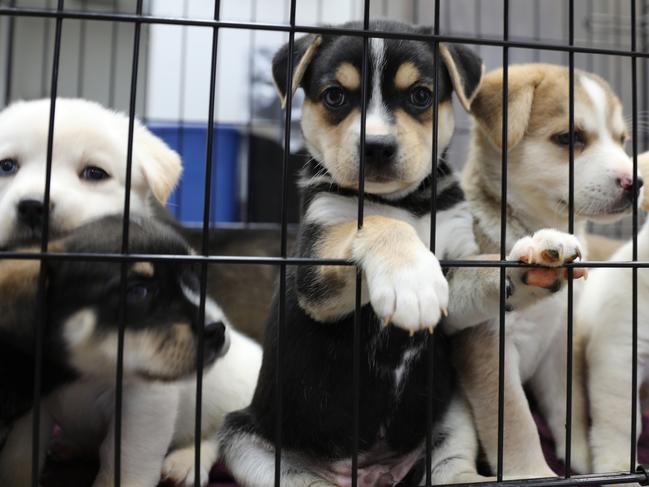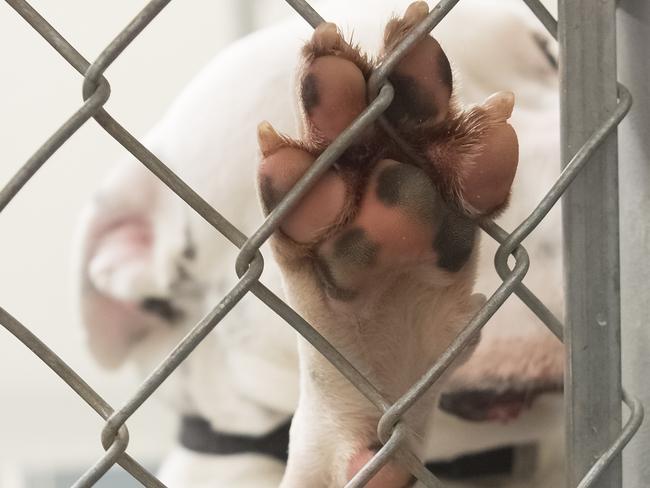Animal shelters at crisis point as abandoned pet numbers soar
The RSPCA has sounded the alarm over a disturbing spike in the number of pets being abandoned as fears grow over a rise in animal cruelty cases.
Victoria
Don't miss out on the headlines from Victoria. Followed categories will be added to My News.
The number of animals seized or surrendered to the RSPCA has increased for the sixth year in a row, with the organisation having investigated more than 10,000 reports of animal cruelty in the past 12 months.
The animal protection agency has sounded the alarm about a worrying increase in the number of pets landing in their shelters, with 2569 animals — a 20 per cent year-on-year increase — being seized by the Inspectorate this year.
The most common pets to be seized were dogs (581 — up from 416 a year prior) and cats (540) and kittens (423).
The local government area of Melton was identified as the state’s animal cruelty hotspot in the past 12 months, with 260 animals seized in that region alone.
The council area of Latrobe followed with 116 animals being taken from their owners. Ararat, Wellington and Hume were other hot spots.
Meanwhile, the City of Greater Geelong received the most cruelty reports (550), followed by Casey (508), Hume, (414), Wyndham (373) and Whittlesea (357).
The RSPCA has forecast that the number of animals coming into its care will reach more than 3340 by 2027 – representing a whopping 222.7 per cent increase from 2017/18.
RSPCA Victoria Chief Inspector Michael Stagg said the cost-of-living crisis could be a key factor in cruelty concerns.

“Cost of living pressures may be impacting people’s ability to care for their pets, whether it be their ability to provide suitable food or their ability to pay for necessary veterinary care,” he said.
“Many people also became first-time pet owners during the pandemic and may need further information or support to help them understand how to care for their animals such as providing sanitary living conditions, grooming or preventive health measures.”
The most common type of cruelty reports related to animals being left with no water, food or shelter.

Other concerns including poor living conditions, animals not being regularly groomed or treated for illnesses, were also raised.
Concerningly, the number of reports about pets being abandoned by their owners also soared by 15 per cent, with the RSPCA receiving 1468 complaints.
Mr Stagg said the record seizures is leading to an ongoing strain on resources for the organisation, which has previously called for more government funding.
“When we prosecute cases of animal cruelty, our shelter teams may need to care for the animals involved as the court cases progress, sometimes lasting months or years, adding to the pressure already faced by our near-capacity shelters,” he said.
“During this time, we’ve also had several investigations resulting in large-scale seizures or surrenders of animals, forcing our teams to find room and resources to care for them in a short space of time.”




